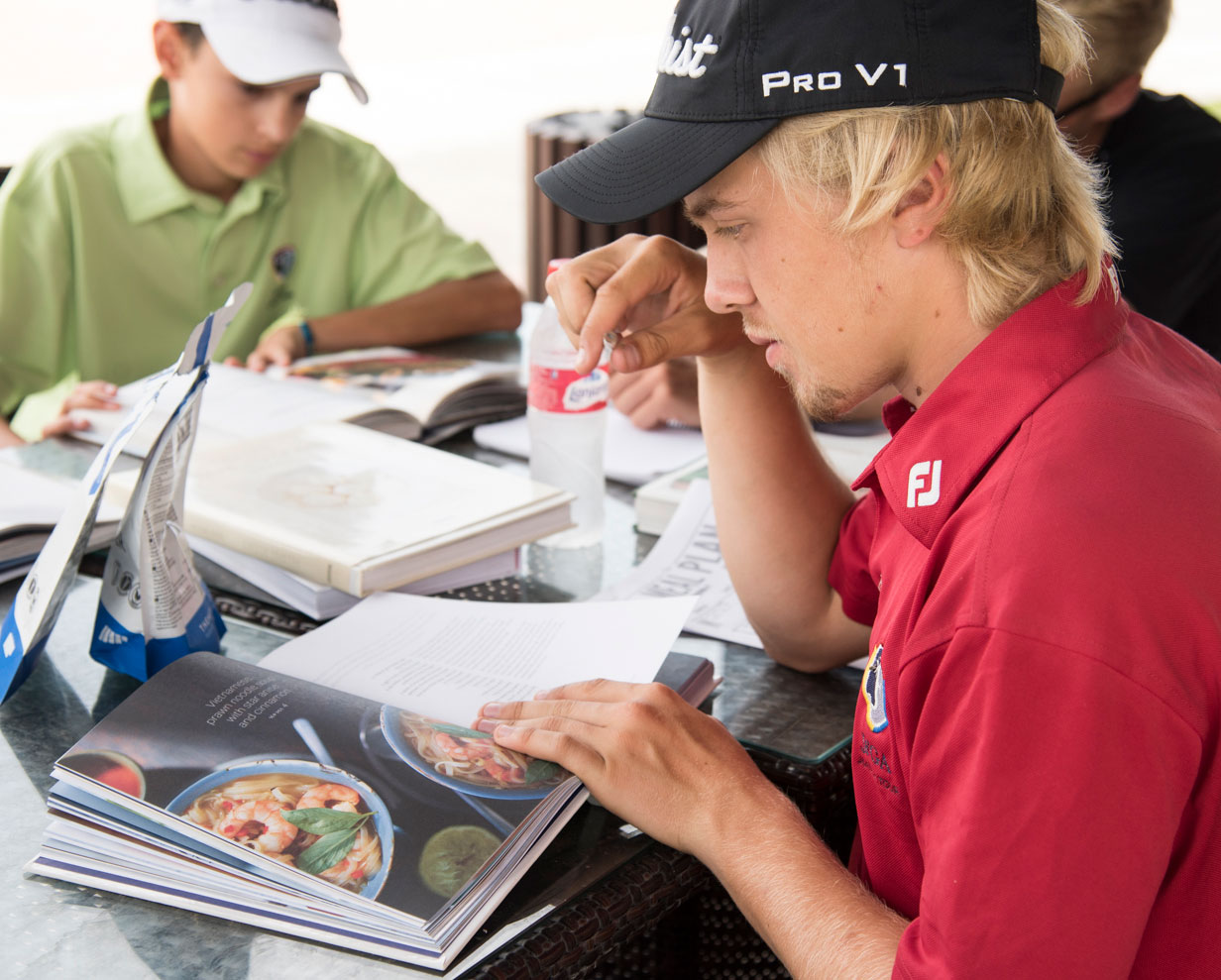Does your concentration dip at the 9th hole or the 11th, maybe the 13th or 15th?
At Jason Floyd Golf Academy, we teach our students what kind of nutrition to take to face golf tournaments.

Nutrition can play a key role in helping maintain your concentration through the full 18 holes of your tournament.
The very first lesson I teach our students is the importance of hydration and electrolyte balance. Getting this right is essential for giving yourself the best chance of success.
Hydration
Did you know that even a 2% drop in hydration can cause a noticeable drop in physical and mental performance? And a 5% drop may decrease performance by 30%.
We tend to be most dehydrated when we wake up in the morning so it’s important to start the day with a couple of glasses of water, immediately upon waking.
As we go through the day, always have some water to hand and consume 2-3 litres.
On tournament days I encourage students to eat hydrating fruit like melon, apples or peaches around 30 minutes before teeing off. Have a few sips of water at every hole. We may need to drink extra on tournament days to factor in the heat of the Spanish sun and sweating. It’s something you need to be aware of even in the winter as wind can have a drying effect.
I show students hydration charts which use the colour of urine as a way of checking how hydrated you are. Of course, we are aiming for a light, clear colour!
Electrolytes
Electrolytes are minerals such as sodium, potassium, chloride and magnesium. They are essential for concentration and energy (among many other functions).
We lose electrolytes when we sweat. We know this because our sweat and tears taste a little salty. If we lose too many electrolytes we may feel tired, lose concentration, or develop a cramp.
While we may do really well drinking enough water and keeping hydrated, it’s important not to end up diluting our electrolytes.
The easy solution is to add a pinch of Himalayan salt and a dash of orange juice to your water. This will ensure you top up your electrolytes and keep hydrated at the same time.
Many students have noticed the difference these simple steps have made to their performance. Why not give it a try?
By Claudia le Feuvre, Nutritional Therapist and Eating Psychology Coach
References
www.sportscardiologybc.org/the-effects-of-hydration-on-athletic-performance




